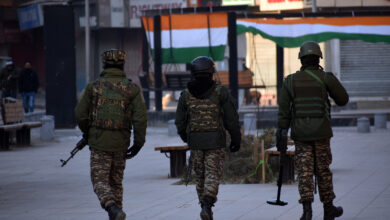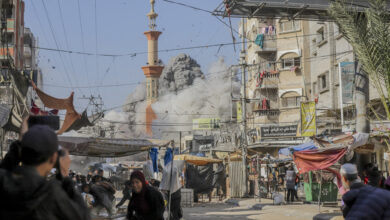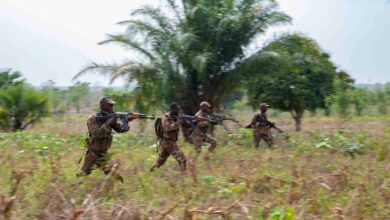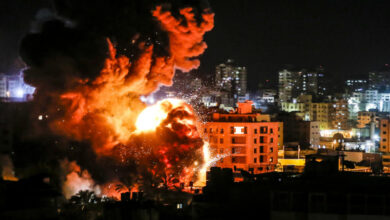Militant Islamists are suspected to have killed 12 people in northern Mozambique as they shift attacks to vehicles despite increased army patrols on main roads.
Most of the victims died in attacks on cars and buses in the gas-rich, Muslim-majority Cabo Delgado region where militants have carried out attacks in remote communities for more than a year.
The murders mark a shift in strategy that had previously targeted isolated homes.
Four people were killed and four others wounded early on Saturday while driving near the town of Manilha, according to a police officer based near Mocimboa da Praia, in one of the worst-hit zones.
On January 6, seven others were murdered in nearby Ulumbi after their bus was ambushed by a group of gunmen who torched the vehicle, local sources said.
Another person was murdered and cut into pieces in the rice-growing area of Nailwa, five kilometres (three miles) from Palma, a district capital.
The military has begun to escort public transport vehicles but they have nonetheless come under attack, said the police officer who asked not be named because he had no authority to speak to the media.
Drivers and their passengers now prefer to travel without soldiers because it makes them a more likely target, the police officer told AFP.
“The order of the attackers is [for people] to leave the villages,” a local community leader who also asked to remain anonymous for fear of repression by the police, told AFP.
“They say that these are liberated zones, they do not want people to live here,” said the village leader added.
Islamists blamed for attacks in gas-rich Cabo Delgado
Cabo Delgado province is expected to become the center of a nascent natural gas industry after several promising offshore discoveries near Palma. The vast gas deposits could transform the impoverished country’s economy, with experts predicting that Mozambique could even become the world’s third-largest exporter of liquefied natural gas.
But the country’s north has largely been excluded from the economic growth of the last 20 years, creating fertile ground for radical Islamist ideology.
The region has seen a number of deadly assaults on security forces and civilians since October 2017, beginning with an attack on a police station and military post in Mocimboa da Praia in which two police officers died. That incident was believed to be the first militant Islamist attack in the country.
In the following weeks, at least 300 Muslims were arrested, some of them Tanzanians, and several mosques were closed.
Since then, more than a hundred people have been killed in gun and knife attacks and thousands more forced to leave their homes.
Many incidents have been blamed on an Islamist group called Ahlu Sunnah Wa-Jama – followers of the prophetic tradition – or “Swahili Sunnah,” known locally as “al-Shabaab.”
Researchers have said the Ahlu Sunnah Wa-Jama leadership has links to Islamist groups based in Tanzania, Somalia, Kenya and in the Great Lakes region, where some also received training, Reuters reported.
In August, police identified six men – Abdul Faizal, Abdul Remane, Abdul Raim, Nuno Remane, Ibn Omar and a sixth known only as Salimo – who they said were leading attacks.
Legal proceedings against around 200 suspected militants began in October at a jail in the provincial capital Pemba.
In December, Mozambican prosecutors named South African Andre Mayer Hanekom and Tanzanians Chafim Mussa and Adamu Nhaungwa Yangue among leaders of the group. The three face charges of murder, crimes against the state, inciting civil disobedience among a slew of other offences.
Affectionately referred to as “baba mzungo” or “white father,” prosecutors allege Hanekom was responsible for the group’s logistics, including payment of monthly salaries equivalent to $160, and provision of medicines.
Some of the suspects “confessed that the group intends with their armed actions to create instability and prevent the exploitation of natural gas in Palma, and later create an independent state, which annexes the districts of the northern region of Cabo Delgado and the south of …Tanzania,” according to the charge sheet.
Mozambican President Filipe Nyusi has deployed heavy reinforcements to the region and vowed to eradicate the extremist group.
Human Rights Watch (HRW) last month accused security forces of serious human rights violations and several journalists have been arrested in the area.
With reporting from AFP












